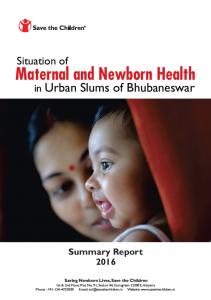
The slum population in Indian cities is rapidly expanding (25.1% decadal growth – Census 2011). This urban poor population offers complex challenges of vulnerability for adverse maternal and newborn health (MNH) outcomes. Public health care provisioning for MNH in urban slums is mostly unstructured, fragile and with almost non-existent outreach. Health service utilization is compromised due to limited capacity for decision making, negligent and delayed care seeking, issues to access and affordability, and the plethora of unorganized private providers. This is compounded by socio-behavioral, spatial and economic inequities that define the context of disempowerment and constraint for this population. The National Urban Health Mission (NUHM), launched in 2013, advises for improving the health of the urban slum populations through a needs-based, city-specific urban health care system that includes a refurbished primary care system, targeted outreach, equitable access, and involvement of the community and urban local bodies (ULBs). The lack of formative information and disaggregated data impedes efficient urban health policy-making and programming.
Save the Children in collaboration with the Bhubaneswar Municipal Corporation (BMC) and the state National Health Mission (NHM) undertook this study in the urban slums of Bhubaneswar city to generate learnings for designing a city-specific public health approach to improve MNH services for the urban poor.